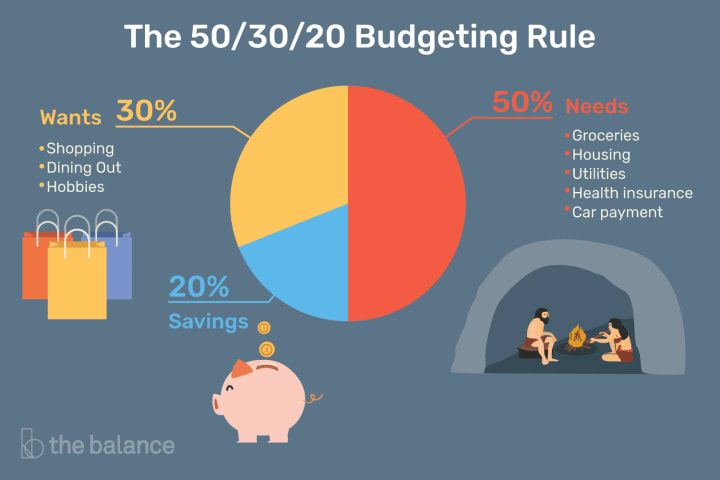5 Important Factors to Consider When Finding a Financial Assistant App
Finding a Financial Assistant App

In today’s digital world, a financial assistant app is worth your time and investment. However, choosing the right financial assistant app can be a game-changer for managing your finances. So, how do you decide with so many options available? In this blog post, we’ll learn 5 factors to consider when choosing a financial assistant app that can make or break your financial management experience.
A financial assistance app on your smartphone can be a huge help. First, banking and personal finance apps make managing money and budgeting easier. Second, they save you time through automation. The right app will streamline any financial process you need, optimizing your workflow and making it as convenient as possible.
Let’s explore five key factors that will help you find the perfect app to make your financial tasks easier.
1. Focus on Your Personal Goal
If you’re a student, think about your financial goals. Do you want to save money? Start investing? Adapt to a new budget? Each goal may need a different app. The right app will help you stay focused on your goal and track your progress.
Similarly, finding the right college is crucial for your educational goals. Research.com is designed to help you achieve this by providing the best college rankings, focusing on criteria such as affordability, return on investment, and popularity. This website lets you easily compare institutions, explore financial aid options, and understand potential career outcomes.
2. Compare Your Needs to the App Features
Banking, investment, and personal finance apps offer different features. Based on your goals, identify your primary needs. These could be:
● Budgeting
● Saving money
● Creating an emergency fund
● Expanding your investment portfolio
● Automating bank payments
● Paying off debt
● Tracking your net worth
● Receiving payments for your business
● Managing financial goals
Find an app that covers several of your needs. If not, consider using two apps for different goals.
In the same way you evaluate financial apps to meet your diverse needs, SwiftStart Amazon agency caters to all your e-commerce goals. Whether you're looking to optimize your Amazon product listings, increase sales, manage your inventory, or expand into new markets, SwiftStart Agency provides solutions that help you succeed as a new seller.

3. Study the App’s Security Measures
Look for apps that allow you to set up a separate account for your personal information. Some apps offer multi-factor authentication, requiring a PIN or password plus an additional ID form, like a phone, email, or Face ID. Additionally, the app should have data encryption to keep cybercriminals out. If an app doesn’t offer these security measures, it’s best to skip it.
4. Consider the Cost
If you have a tight budget, compare the prices of personal finance apps. Some apps have a one-time download fee, while others require monthly or yearly payments. Many free apps offer similar services, such as investing, budgeting, and banking.
Paid apps often have trial periods.
5. Read User Reviews
If you still can’t decide, check user ratings and reviews. The app’s description will try to sell you on it, but real user reviews can provide unbiased opinions. Look for reviews from people with similar goals. Also, consider apps with ratings over four stars.
Tips for Making Good Financial Decisions
Making good financial decisions is crucial for college graduates to achieve stability and manage their money. Here are detailed tips to help you navigate your financial journey effectively:
1. Create a Comprehensive Budget
A budget is your roadmap to financial health. Start by calculating your total income and evaluating all your expenses. Allocate your income into needs, wants, savings, and debt repayment categories. Consider different budgeting methods to find what works best for you:
● 50/30/20 Budget: Allocate 50% of your income to needs (essential expenses like rent and groceries), 30% to wants (non-essential expenses like dining out and entertainment), and 20% to savings and debt repayment.
● Zero-Based Budget: Give every dollar of your income to a specific purpose, ensuring that all income minus expenses equals zero. This method forces you to account for every expense and prioritize savings and debt reduction.
● Activity-Based Budget: Tailor your budget to reflect the costs associated with specific activities or projects, which is useful for freelancers or businesses with variable income.
2. Avoid Accumulating Debt
Debt can be a major problem to financial stability. Prioritize avoiding high-interest debts such as credit card balances and payday loans. If you have existing debts, consider using:
● Snowball method (paying off smaller debts first)
● Avalanche method (paying off debts with greater interest rates first)
3. Build an Emergency Fund
34% of all Americans, totaling over 100 million people, have no savings at all. Can you imagine the stress this may cause?

Just consider these questions: What if you faced an unexpected medical bill or your pet fell ill and you needed to see a vet? Or what if your car broke down, and you had to pay for a tow truck? Therefore, save at least three to six months of living expenses in an emergency fund.
4. Set Clear Financial Goals
Define your short-term and long-term financial goals. Whether it's buying a home, saving for retirement, starting a business, or supporting your children's education, having goals helps you stay motivated and focused. Review your progress regularly and break larger goals down into smaller steps. Adjust your budget and savings strategies to ensure you're on track to achieve your goals.
5. Invest Wisely
When establishing an emergency fund and paying off high-interest debt, consider investing in some liable options to grow your wealth. Research different investment options like stocks, bonds, mutual funds, and real estate. If you're unsure where to start, seek advice from a financial advisor who will help you align your investments with your goals.
6. Educate Yourself Continuously
Financial education is essential to making informed decisions. Stay updated on financial news, investment strategies, and personal finance tips. Attend workshops, read books, and follow reputable financial websites and blogs to enhance your knowledge.
The more you understand managing money, the better you'll be equipped to make sound financial decisions.
7. Monitor Your Credit Score
Your credit score is important to your financial health. Therefore, it’s essential to check your credit report for accuracy regularly. Take steps to improve your score by making payments timely, reducing credit card balances, and avoiding unnecessary credit applications. A good credit score can lower borrowing costs and increase your financial flexibility.
8. Seek Professional Advice When Needed
If you're facing complex financial decisions such as tax planning, estate planning, or retirement strategies, don't hesitate to consult a qualified financial advisor or accountant. They can guide you according to your circumstances and help you fight challenging financial situations effectively.
Conclusion
Selecting the right financial assistant app is crucial to effective financial management in today's digital age. By focusing on your personal goals, comparing your needs to app features, studying the app’s security measures, considering the cost, and reading user reviews, you can choose an app that aligns perfectly with your financial objectives.
About the Creator
Enjoyed the story? Support the Creator.
Subscribe for free to receive all their stories in your feed. You could also pledge your support or give them a one-off tip, letting them know you appreciate their work.





Comments
There are no comments for this story
Be the first to respond and start the conversation.